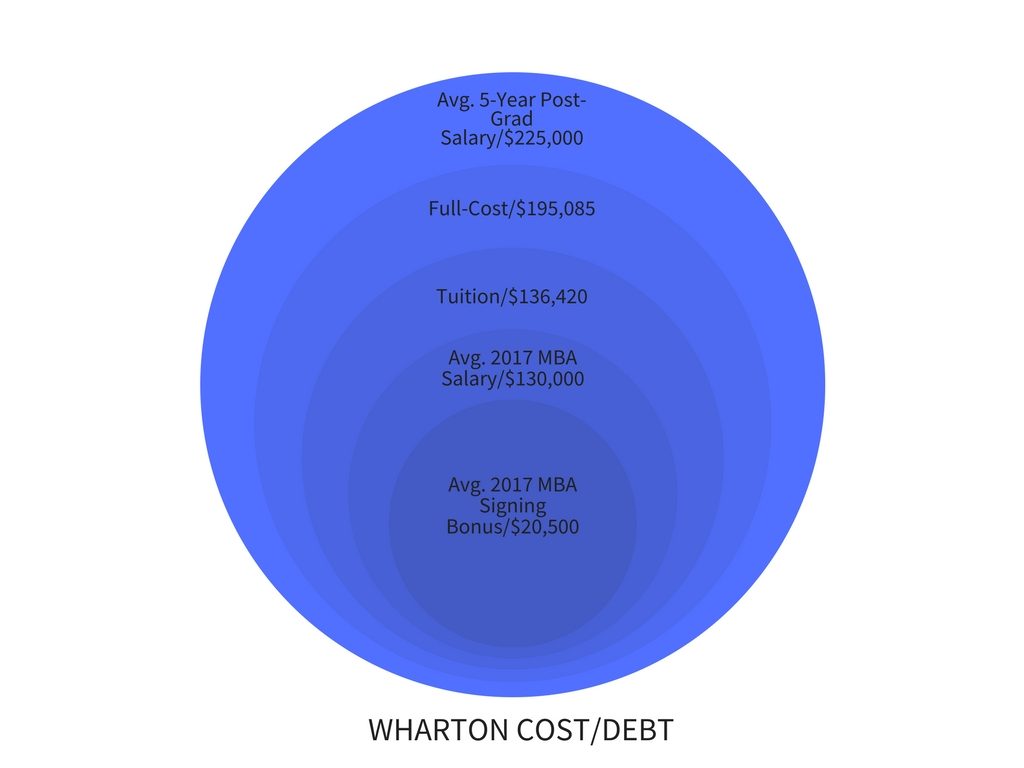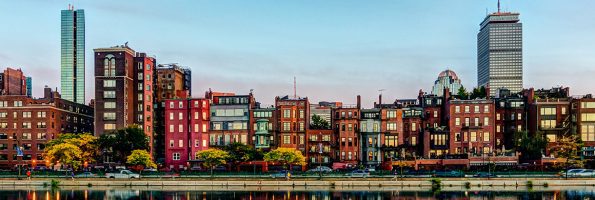Finding Philly’s Best MBA Return on Investment

It’s no secret that Philadelphia’s relatively low cost of living has historically made the Birthplace of America an attractive option for those in search of a big city experience outside the skyrocketing markets of other major East Coast cities.
As people flock from the New York metro region in search of a similar urban adventure at a substantially lower price point, Philadelphia has been controversially dubbed the “6th Borough.” Word to the wise for potential b-school interlopers: never tell any Philadelphian their home has been annexed by New York City.
About 90 minutes by train from New York City, the City of Brotherly Love is no Big Apple, but it’s one-of-a-kind. Sure, tourists and locals alike grip cheesesteaks in one hand while pumping their fists on the steps of the Art Museum a la Rocky, but the city reveals itself to those who have the patience (and wherewithal) to dig into it.
Whether that means embarking on a two-year MBA program or choosing among the accelerated options available, Philadelphia just happens to be home to several top ranked MBA programs in the world. Let’s take a close look at Philly’s programs. Oh, and here’s a napkin for the wiz.
Philadelphia Return on Investment
University of Pennsylvania’s Wharton School of Business
Officially the oldest business school in the U.S., The Wharton School at the University of Pennsylvania boasts well-known alumni billionaire financier Ron Perelman, LinkedIn CEO Jeff Weiner, and John Sculley of Pepsi and Apple. Wharton’s tuition of $136,420 and estimated total budget of $195,085 isn’t to be taken lightly. However, full-time MBA graduates earn an average base salary of $130,000 with an average bonus of $20,500, and a supreme 92.6 percent job acceptance rate. So, while having a somewhat unimpressive salary-to-debt ratio, Wharton’s reputation and alumni network precedes itself.
In fact, the school recently topped the annual Forbes best full-time MBA program list, sporting the best five-year financial gain after graduation. Wharton MBA graduates of the Class of 2012 are making a $225,000 average annual salary—roughly 42 percent higher than recent grads, easily topping the cost/debt ratio of the program.

Saint Joseph’s Haub School of Business
Notable alumni of Haub School of Business at Saint Joseph’s University include CEO of NutriSystems, Inc. Michael J. Hagan, Chairman and founder of Philadelphia Consolidated Holding Corporation James J. Maguire, and Senior vice president of PNC Bank Denise Viola-Monahan. SJU’s $30,294 tuition set against an average base salary of $65,000 means the school offers a competitive MBA to those who don’t want to break the bank.
Temple’s Fox School of Business
Fox School of Business at Temple University’s notable alumni include Systel CEO Jai Gulati, former COO and president for ConocoPhillips John Carrig, and CEO of Actavis and co-founder of Health Care Compliance Association Brenton L. Saunders. Fox’s tuition sits at $57,048 for residents and $80,484 for nonresidents. With a 97 percent job placement rate compared to $25,623 average debt and a $85,278 average base salary, Fox’s salary-to-debt ratio looks attractive.
Drexel University LeBow College of Business
The LeBow College of Business at Drexel University alumni include President and CEO of Rohm and Haas Raj Gupta, former CEO of Science Applications International Corp. Kenneth C. Dahlberg, and the Phillie Phanatic Tom Burgoyne. Tuition is $59,565, and graduating MBAs carry an average debt of $43,894. With a reported average base salary of $84,080, LeBow’s salary-to-debt ratio is competitive. Considering the comparatively low price point, LeBow emerges as an incredibly attractive ROI.
YOU MAY ALSO LIKE: How Philadelphia MBA Programs Help Lower-Income Applicants
University of Delaware Lerner College of Business
A short 20-minute train ride from Center City Philadelphia and under two hours from New York City, the Lerner College at the University of Delaware has an eye-catching reported average base salary of $90,291. Compared to tuition, which ranges from $33,000 to $55,000, depending on residency, Lerner’s ROI could shine through if figures hold true for most MBA earners from this institution.
Penn State Smeal College of Business
Although its central campus is located in Happy Valley, PA, the Smeal College of Business at Penn State offers an executive MBA program in Philadelphia. The program is priced at a hefty $102,000, but average graduate debt is reported at $36,500, and median salaries ranging from $97,890 to $101,857. With such an impressive salary-to-debt ratio, Smeal is an attractive option for those who prefer easy metro access rather than living in the thick of the action. Notable alumni include Chairman and CEO of Petroleum Products Corp. John Arnold, and Former Chairman and CEO of Merrill Lynch & Co. William Schreyer.
How Boston Business Schools Help Low-Income MBA Applicants

Anyone planning on earning a postgraduate business degree knows that MBA programs cost a lot of money. In the Boston metro, where the cost of living is already high, the annual cost of an MBA program can reach upward of $100,000 … Ouch! Continue reading…
The Boston vs. Washington DC Full-Time MBA Battle

Choosing the right city for your MBA program can be a bigger choice than it seems: given the connections and opportunities an MBA typically provides, the city where you pursue your degree will likely be the same city where your career begins and grows.
Even if you’ve narrowed down your business school search to the east coast, you’ve still got a number of top metros to choose from. So regardless if you’re looking south to Washington, D.C., or north to Boston, both metros will likely offer a number of benefits for up-and-coming business professionals.
Both D.C. and Boston offer a number of exceptional full-time MBA programs, giving a prospective MBA a lot to think about. Below, we’ll break down some of the biggest differences in location, programs, and job placement for each metro.
Location
As long as you can deal with snow, Boston is a multicultural hub of business that covers a variety of industries, from startups to high tech and the creative economy. Massachusetts is home to 30 Fortune 500 companies, with massive corporations like General Electric and Liberty Insurance Group centered within Boston. However, as the city continues to grow and improve, the cost of living is also climbing, with Boston ranking eight overall as the most expensive city in the United States.
If you are looking to use your business acumen in a government setting, there are few places better to go than the nation’s capital. With fifteen companies making the Fortune 500 list in the Washington DC metro area, there are a number of opportunities for MBAs to put their business skill to work, even outside of government agencies, with companies like Wal-Mart and Exxon Mobile leading the list. However, DC even outranks Boston for cost of living, ranking as the third most expensive city in the United States.
Washington Full-Time MBA Programs
The Washington DC metro has more than 35 higher education institutions with post-bachelor programs for business students. Featuring some of the top ranked MBA programs in the country, many of the DC programs focus on professional integrity and ethics, attempting to reflect its location in the country’s capital. Many of the MBA programs here also focus on placing business within a global context, encouraging students to gain real-world experience outside of the classroom to gain a better understanding of the global business community.
Full-Time MBA Programs in DC Include:
- George Mason University School of Business
- George Washington University School of Business
- Kogod School of Business – American University
- University of Maryland R.H. Smith School of Business
Boston Full-Time MBA Programs
The Boston metro features some of the top ranked and oldest business schools in the world, which focus on placing students within the global economy and encouraging study abroad opportunities that allow students to get hands-on experience in international business. Given Boston’s reputation as a growing business hub, many of the top jobs in the city may require an MBA.
Full-Time MBA Programs in Boston include:
- Sloan School of Management – MIT
- Harvard Business School
- Questrom School of Business – Boston University
- Sawyer Business School – Suffolk University
- Carroll School of Management – Boston College
Cost of MBA Programs
Cost can be an important consideration when choosing a degree program. The average tuition costs of the Washington DC programs mentioned above is roughly $82,090, though the number may be slightly less for local students. In Boston, the range may be slightly higher. Harvard Business School can cost up to $122,000 per year, but other quality programs in the Boston metro can also be found as low as $91,040.
Job Placement and Salary
The cost one is willing to spend on an MBA is often largely determined by the potential salary that can be made after obtaining the degree. Given that both Boston and DC are among the U.S. cities with the highest cost of living, salary may be an important determination in selecting a city to start your career. Thankfully, both cities offer the chance for high earning potential. According to PayScale, Boston MBA graduates can earn anywhere from $53,725 on average to $173,940. In Washington DC, where there is a slightly higher cost of living, salaries can range from $58,402 to $147,715.
